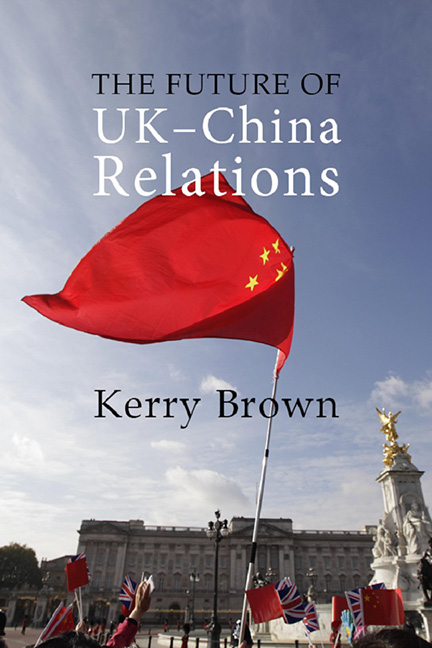Book contents
- Frontmatter
- Dedication
- Contents
- Dedication
- Preface
- Foreword by Tim Clissold
- Introduction
- 1 Tales from the golden age
- 2 What does China want? The case of the UK
- 3 Walk on by: what does Britain really want from China?
- 4 Who cares? The China circle in Britain
- 5 The good, the bad, and the Brexit: the UK and China outside the EU
- 6 The UK and China: scenarios for the coming decade
- Appendix: the UK’China balance sheet
- Further reading
- Notes
- Index
Introduction
Published online by Cambridge University Press: 24 August 2023
- Frontmatter
- Dedication
- Contents
- Dedication
- Preface
- Foreword by Tim Clissold
- Introduction
- 1 Tales from the golden age
- 2 What does China want? The case of the UK
- 3 Walk on by: what does Britain really want from China?
- 4 Who cares? The China circle in Britain
- 5 The good, the bad, and the Brexit: the UK and China outside the EU
- 6 The UK and China: scenarios for the coming decade
- Appendix: the UK’China balance sheet
- Further reading
- Notes
- Index
Summary
It was one of those large public debating festivals held usually during the warm months in Britain. A packed schedule of events over two days, addressing issues from the US election to the impact of artificial intelligence – a smorgasbord of argumentation and intellectual manoeuvring by speakers and their audiences. Panels with invited experts on specific themes spoke for a few minutes each and then there were moderated question and answer sessions with the audience. I was glad to have been invited just as an academic attendee. Academics were at least spared the full onslaught of public indignation and rage because we were regarded as experts present to give balance. Polemicists, controversialists, politicians, and self-publicisers were not so lucky. But then, in an odd way, brutal treatment by their audiences seemed to be what they were there for. They had Nietzsche’s famous dictum engraved on their hearts: what didn’t kill them was going to make them stronger; they seemed to be there to survive and then get more powerful.
Academics are supposedly custodians of neutrality. That is our claim about ourselves at least. And these days, the title “Professor” usually gives some pause for thought and restraint on whomever you are facing publicly and grants a little bit of mercy. My session was about the impact of the rise of China. The argument I used was one that I had deployed at similar events throughout Europe and the rest of the world over the previous months and years: like it or not, China is going to be part of our global economic future and probably our geopolitical and social one. Even if we are not going to it, it is coming to us – through investment, finance, students and tourists. This is a moment of historic change. For the first time in modern history, a power with a profoundly different cultural background and a very different set of values (ones that I will spell out in more detail later) is about to take centre stage. We (and throughout this work, when I use the word “we” I am referring to constituencies in the UK) need to adjust our mindsets, revise our vocabularies, and reset our standard maps of the world.
- Type
- Chapter
- Information
- The Future of UK-China RelationsThe Search for a New Model, pp. 1 - 10Publisher: Agenda PublishingPrint publication year: 2019

